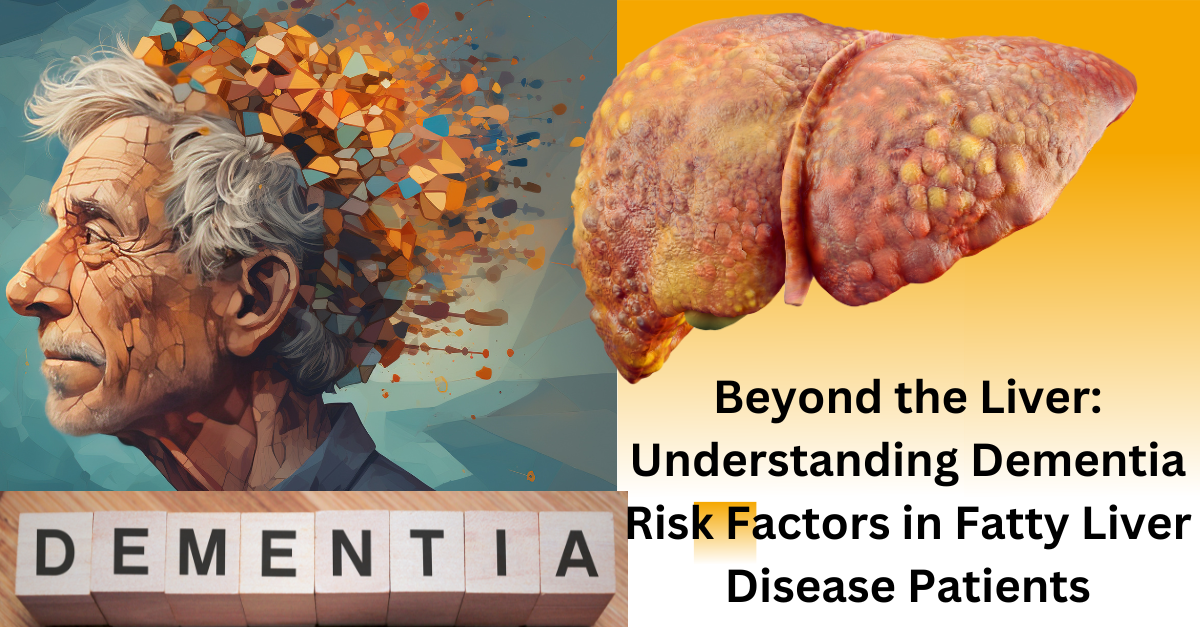Fatty Liver: Beyond the Liver: Understanding Dementia Risk Factors in Fatty Liver Disease Patients
The accumulation of fat in the liver cells, a condition known as fatty liver disease, has long been linked to numerous health hazards. A worrying association between fatty liver disease and the beginning of dementia symptoms has been revealed, however, by new research. The remarkable connection between these illnesses is becoming more apparent as medical researchers explore their intricacies further.
Fatty liver disease: Recent Advances in the Field
Those who have fatty liver disease may have a higher chance of getting dementia symptoms in old age, according to recent scientific studies. The medical community is extremely intrigued by these discoveries, which has led to an increase in research into the mechanisms that cause this link.
Investigating the Processes 
Although researchers have not yet proven a direct causal relationship between fatty liver disease and dementia, numerous reasonable hypotheses have surfaced. Inflammation is at the center of one such theory. The persistent inflammation that fatty liver disease causes can have profound consequences for the body’s neurological systems. Fat buildup in the liver can also interfere with metabolic functions, which can cause systemic malfunction and affect mental health.
Insulin Resistance and Its Functions 
Fatty liver disease is characterized by insulin resistance, which has also been linked to dementia. According to research, insulin resistance can make neurofibrillary tangles and amyloid plaques, which are the hallmarks of the most common type of dementia, Alzheimer’s disease, worse.
Health Policy Consequences
The growing amount of evidence linking fatty liver disease to dementia has important public health consequences. To create effective preventative tactics and treatment interventions, it is crucial to recognize and address the interaction between the two illnesses, especially as their prevalence rises worldwide.
Taking the initiative in Fatty Liver Disease
Given these results, it is recommended that people with fatty liver disease take measures to reduce their chances of getting dementia. A healthy lifestyle involves things like exercising regularly, eating a balanced meal full of fruits and vegetables, and not letting your weight grow too high. Protecting cognitive function over time also requires controlling underlying risk factors like excessive cholesterol, diabetes, and hypertension.
 The Value of Prompt Identification in Fatty liver Disease
The Value of Prompt Identification in Fatty liver Disease
Both dementia and fatty liver disease are best managed with prompt diagnosis and treatment. Cognitive evaluations and liver function tests are examples of routine medical screenings that can aid in the early detection of risk factors, allowing healthcare providers to put support and intervention plans in place.
In summary,
To conclude, the growing evidence of a connection between fatty liver disease and dementia highlights the interdependence of many facets of human health. Although more study is required to determine exactly what causes this correlation, the consequences for public health are obvious. People who take charge of their health by putting an emphasis on prevention, early detection, and proactive care can lessen the symptoms of fatty liver disease-related dementia.
 https://analytics.google.com/analytics/web/#/analysis/p405220706
Skip to content
https://analytics.google.com/analytics/web/#/analysis/p405220706
Skip to content 

